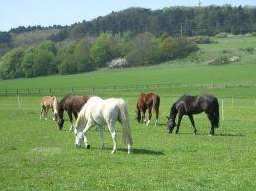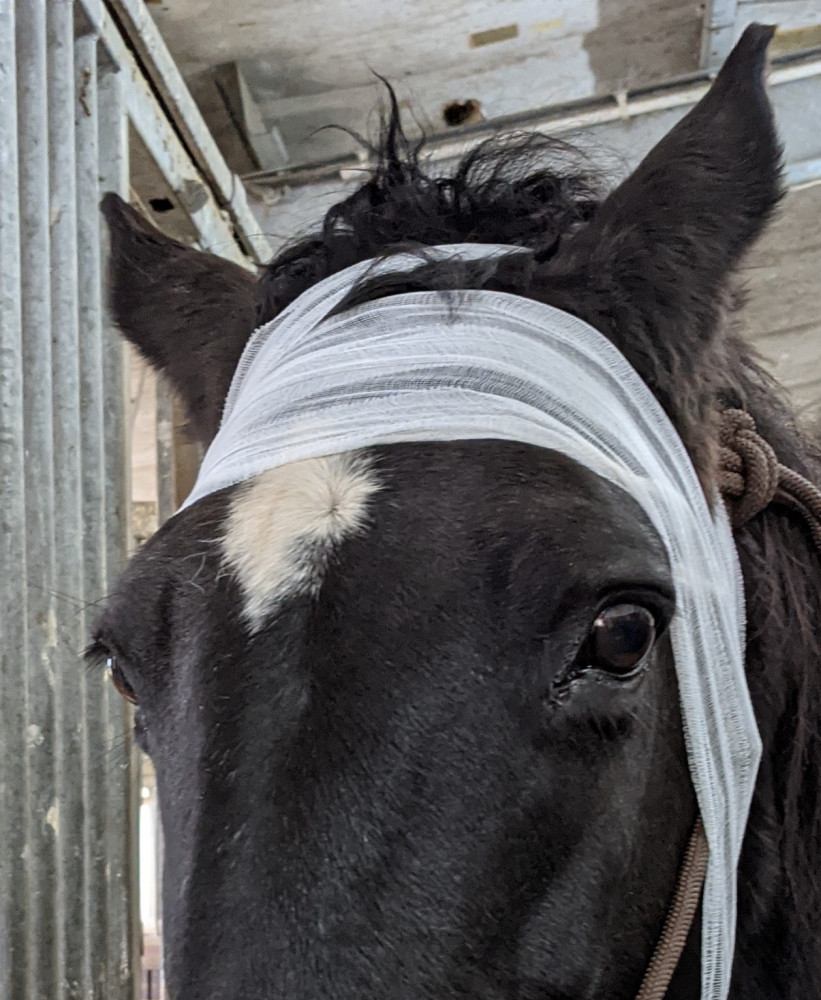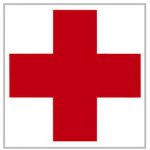Stable vices of horses – horse cribbing
 Cribbing and weaving are behavioral disorders of the horse. While cribbing, the horse makes noises which can be compared with the sound of a belch.
Cribbing and weaving are behavioral disorders of the horse. While cribbing, the horse makes noises which can be compared with the sound of a belch.
If a horse once started with cribbing it is really difficult to make him stop again. Instead, the behavior becomes compulsive.
What is horse cribbing?
The Horse tenses its lower neck muscles, opens the throat and pulls back the voice box. Through this process air can enter into the digestive tract. We hear this swallow of the air with the noise of a belch. Most of the horses which suffer from this disorder are crib biters. They need a random object where they can lay down their front incisors. This object could be a simple edge, a bar or the manger. After positioning his teeth on the edge the horses starts to bend his neck and inhale the air. In opposite to this there are windsuckers. These horses basically do the same but do not need an object on which they position their teeth on. Instead, they bend their head towards their stomach before they powerfully pull their head up again. During this movement the horse inhales the air. Generally there are much more crib biters than windsuckers.
Origins for horse cribbing
Horse Cribbing is a bad habit and horses begin with it when they are bored, do not have any challenges and are isolated from other horses. In short termes: the horse owner does not guarantee a species-appropriate husbandry. In these cases the horse searches for some new activities and begins to nibble at edges or bars in the box. Then the horse easily can find the new “game” of inhaling air and is happy about this new entertainment. Additionally there still is the rumor that horses start with cribbing because they imitate other cribbing horses (which e.g. stand next to them in the stable). This assumption especially is founded on the fact that horses generally often imitate each other. If, for example, one horse starts to roll on the pasture many other horses will quickly follow this behavior. However until now there are no scientific evidences for this. A further reason for horse cribbing can be wrong feeding. Especially a lack of roughage can have immense consequences because the horse does not get really full but feels hungry. Quickly the horse will find out that he feels fuller if he inhales air. Furthermore horses can begin with cribbing if they usually become many treats or sugar. Then they start to lick off the manger and it is no long way until they start to position their teeth on the manger and inhale air.
Causes of horse cribbing
Horse cribbing is a behavioral disorder which mostly does not cause any great problems for the health of the horse. However the horse owner can become really stressed from it because other members of the stable will try to avoid your horse. A further cause from the cribbing is an immense training of the lower muscle part of the neck so that it becomes strong and fat. The only real health problem is the irregular attrition of the teeth. This can lead to the fact that the horse cannot reduce the fodder into small regular pieces. Additionally horse cribbing often causes general dysfunctions of the gastrointestinal tract: when the air enters the stomach and intestine this can result in a bloat of the stomach. In worst case this leads to colic. Until now we only know from our own experience that horse cribbing often ends in colic or general problems with the gastrointestinal tract. However, there still are no scientific evidences for this assumption.
Therapy and possible cure for horse cribbing
Change of horses’ husbandry and the fodder
If a horse once started with horse cribbing it is really difficult to make him stop again. When horse owners first notice the specific sound they need to react quickly. There are only chances for a cure of the dysfunction if horses do not get used to the air sucking for too long time. The general first step is to change the horses’ husbandry and the fodder.
 The horse needs enough movement, varying activities and contacts with other animals the likes of him. Additionally the horse owner always needs to make sure that the horse has enough straw and hay all over the day. Through this the horse does not feel great hunger and does not need to suck the air. The most important thing is to remove all edges and, if possible, also bars out of the box so that the horse does not have the possibility anymore to position his front teeth on them. For example, you can also replace the old manger with a plastic one. The plastic model is much less sturdy so that it possibly breaks to pieces if the horse tries lay down his front teeth on it. However, own experience showed that a change of fodder and the general horses’ husbandry do not always lead to a stop of cribbing. Instead, one needs to avoid that a horse ever starts with it.
The horse needs enough movement, varying activities and contacts with other animals the likes of him. Additionally the horse owner always needs to make sure that the horse has enough straw and hay all over the day. Through this the horse does not feel great hunger and does not need to suck the air. The most important thing is to remove all edges and, if possible, also bars out of the box so that the horse does not have the possibility anymore to position his front teeth on them. For example, you can also replace the old manger with a plastic one. The plastic model is much less sturdy so that it possibly breaks to pieces if the horse tries lay down his front teeth on it. However, own experience showed that a change of fodder and the general horses’ husbandry do not always lead to a stop of cribbing. Instead, one needs to avoid that a horse ever starts with it.
Cribbing collar
A further alternative is the use of a cribbing collar. This gets positioned at the horses’ neck and makes it really difficult for the horse to tension his neck muscles. The horse consequently always needs to wear this collar (only take it off for riding). Even if in some cases the use of the cribbing collar can help this method is discussed very controversial. We generally advice not to use it because the collar immensely limits the freedom of movement. This for sure cannot lead to a better well-being of the horse.
Surgery
If your horse shows an extraordinary intensive way of cribbing you can also consider a surgery. The doctors remove all muscles of the lower part of the neck what makes it more or less impossible for the horse to go on cribbing. The success rate of a surgery is quite high (nearly 80 %) and has even better changes if the cribbing did not take place for a too long period. In general the success rate is much higher for cribbing than for windsucking.
Medical treatment
A medical treatment does only make sense in some special cases. Until today there is no medicine which really cures but only inhibits the outbreak of the dysfunction. Therefore these receptor antagonists do not lead to an end of the cribbing and as soon as the horse does not get the medicine anymore it will continue with the inhalation of the air.
Surf tips:
- Stable vices of horses – weaving
- Horses with colic- origin, symptoms, treatment
- Did you know that anise can prevent colics?
- Headshaking- Stress for you and your horse
—All statements without guarantee—


3 Comments
Comments are closed.